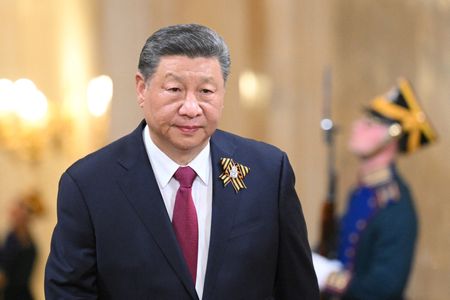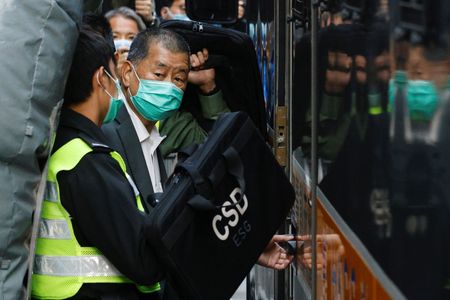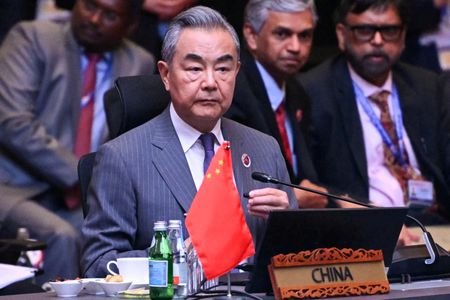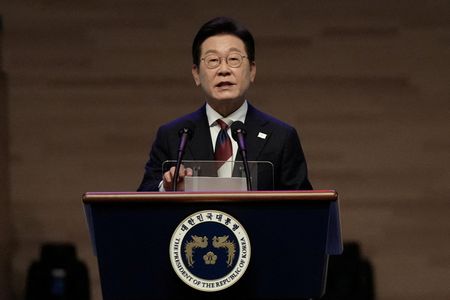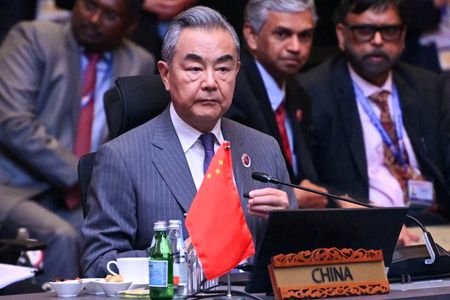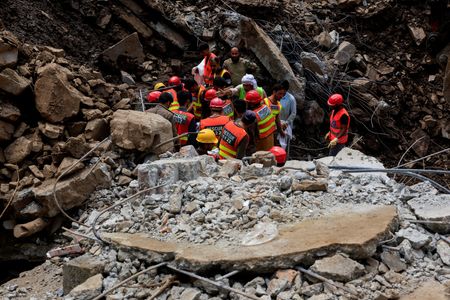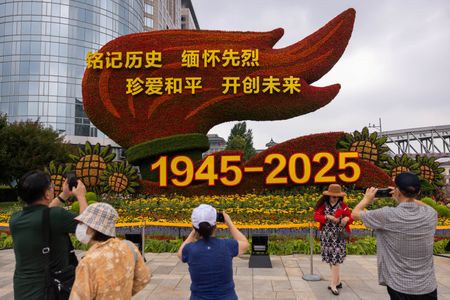BEIJING (Reuters) -Chinese President Xi Jinping arrived in the Tibetan capital of Lhasa on Wednesday for his second-ever visit as China’s leader to mark the 60th anniversary of Tibet’s founding as an autonomous region.
Six years after the 14th Dalai Lama fled into exile in India following a failed uprising, China’s ruling Communist Party established the Tibet Autonomous Region in 1965, the country’s fifth and final autonomous region after Inner Mongolia, Xinjiang, Guangxi and Ningxia.
The designation was meant to offer local ethnic minority groups such as the Tibetans greater say over policy matters, including freedom of religious belief. But international human rights groups and exiles routinely describe China’s rule in Tibet as “oppressive”, an accusation that Beijing rejects.
Xi last flew to Tibet in July 2021 where he urged people there to “follow the party” in a visit largely perceived by outside observers to signal the Communist Party’s confidence that order had finally been established in a region with a long history of protest against Chinese rule.
During a brief period following the 2008 Beijing Olympics, when China further opened its doors to the outside world, Tibet was rocked by protests by monks and nuns, and then a series of self-immolations.
Prior to 2021, the last Chinese leader to visit Tibet was Jiang Zemin in 1990.
More broadly, Tibet is a highly strategic region for China due to its border with India. Troops from both sides had clashed at their border over the years.
Xi’s arrival in Tibet coincided with a rare trip this week by China’s top diplomat Wang Yi to India, where both countries pledged to rebuild ties damaged by a deadly 2020 border skirmish.
Xi was accompanied by Wang Huning and Cai Qi, the party’s fourth and fifth-ranked leaders.
In 2015, the party sent the now retired Yu Zhengsheng, who held the equivalent rank of Wang at the time, to Tibet for the 50th anniversary of the founding of the Tibet Autonomous Region.
(Reporting by Ryan Woo and Beijing Newsroom; Editing by Andrew Heavens and Alex Richardson)

